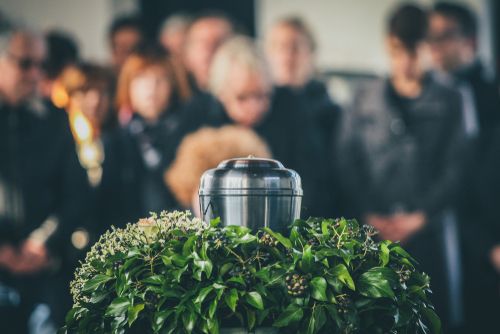
Devout Christians and Catholics might tell you that your decision to be cremated will result in your eternal ban from heaven. Worried parents or grandparents may try to evoke fear by asserting that God cannot raise those who have chosen cremation. Priests and pastors may even weigh in, calling cremation an immortal sin. Do not let such threats and fears intimidate you into changing your end-of-life plans. The Bible does not say anything about cremation, and moreover, it does not specify acceptable burial practices. No matter which burial practices you elect to use, the results are always the same: “Dust to dust and ashes to ashes.”
Religious Red Tape
The Catholic Church has some of the strictest rules and regulations by which parishioners must abide. For centuries, the Church banned cremation because the most aggressive advocates of the practice also claimed that there existed no life beyond this one. In 1963, however, the Holy Office lifted the ban, and in 1969, the Church revised the funeral rites to include permission for prayer at the graveside for someone who had been cremated.
The Holy See enacted further changes in 1997 that expanded the rights and ceremonies of the cremated. Per the changes, U.S. bishops are now free to allow families of the cremated to hold funeral masses in the presence of the remains. It does not matter whether the funeral follows or precedes the cremation.
Rituals Around the World
Funeral rituals are not and never have been stagnant. In addition to varying from culture to culture, burial traditions change with the times, beliefs and societal needs. For instance, in ancient Egypt, families of the deceased would embalm the bodies to delay decay and prepare the tomb for the afterlife, where they believed greater riches were waiting for them.
In China and the Philippines, families would hang the caskets high off the ground along mountainsides and hard-to-reach places. These cultures believed that by placing a coffin closer to the sky, the deceased would have a shorter and easier trip to heaven.
The people of the Republic of Kiribati exhume the bodies of loved ones months after the burial. They then take the skulls, polish them, coat them in oil and preserve them to display in their homes. It is not uncommon for bereaved family members to make offers of food and tobacco to the skulls. Similarly, the people of Madagascar dig up their dead every five to seven years to “take care of them,” which often meant dancing with, perfuming and sharing stories with them.
In recent centuries and in Western cultures, it has become customary for families to embalm the bodies of the deceased and bury them. Embalming delays decay just enough to grant loved ones the opportunity to mourn the deceased and celebrate his or her life.
Cremation Today
Cremation has gained popularity in recent years for two main reasons. One, cremation is more cost-effective than a traditional burial. Though the costs of both vary from region to region and based on how elaborate a ceremony is, the cost of cremation is about one-third that of burial, if not less.
The second biggest factor influencing younger generations to choose cremation is the fact that it is more environmentally friendly. Even individuals concerned about heaven and the afterlife cannot dispute the environmental benefits of cremation, which include fewer chemicals, less waste of natural resources and less waste in city and country cemeteries.
If you’re still skeptical, just return to passage 34:14-15 of Job, which reminds followers that no matter how you want others to celebrate your end of life, your body will ultimately return to dust. Cremation may speed up the process, but it does not revoke your ticket to heaven.



